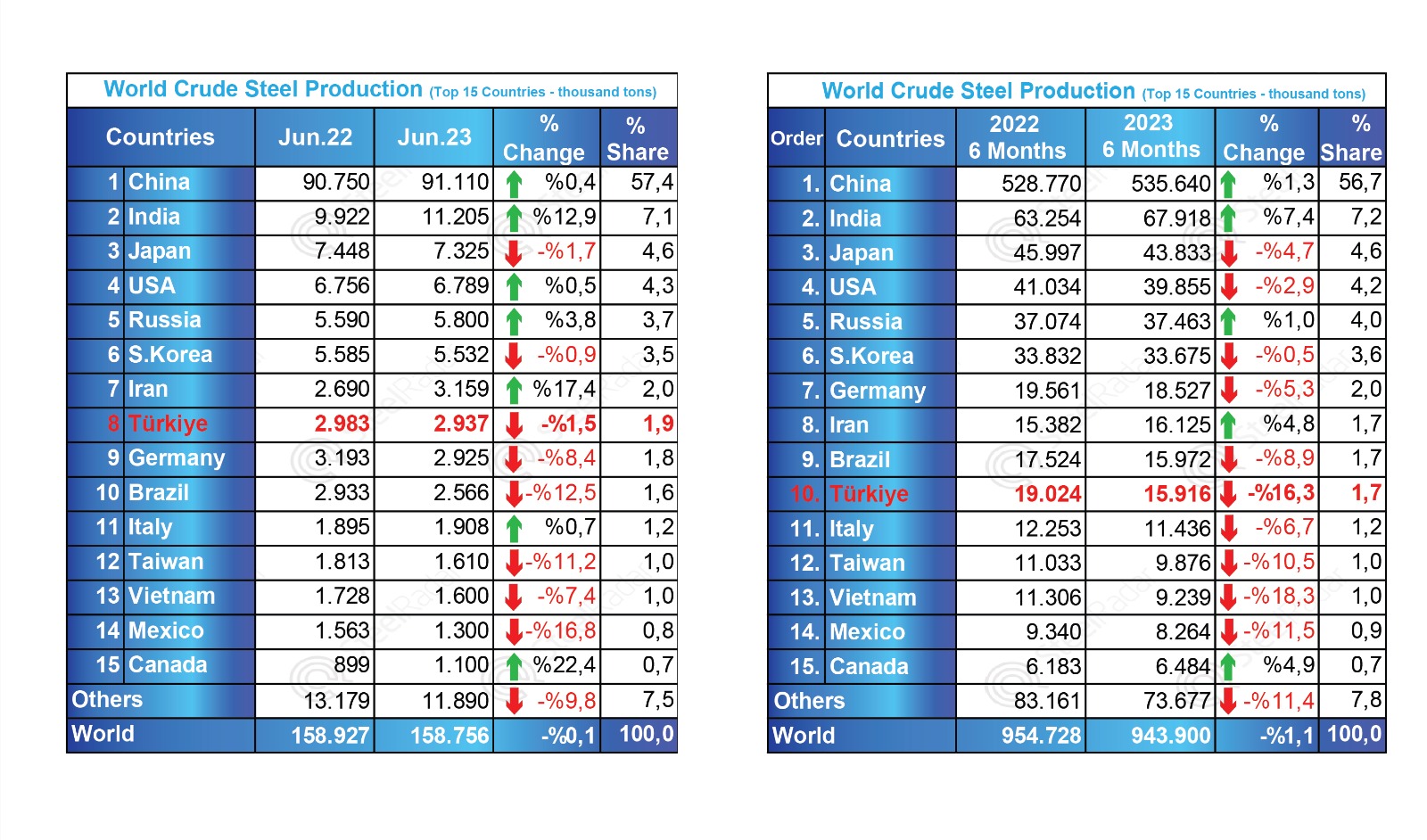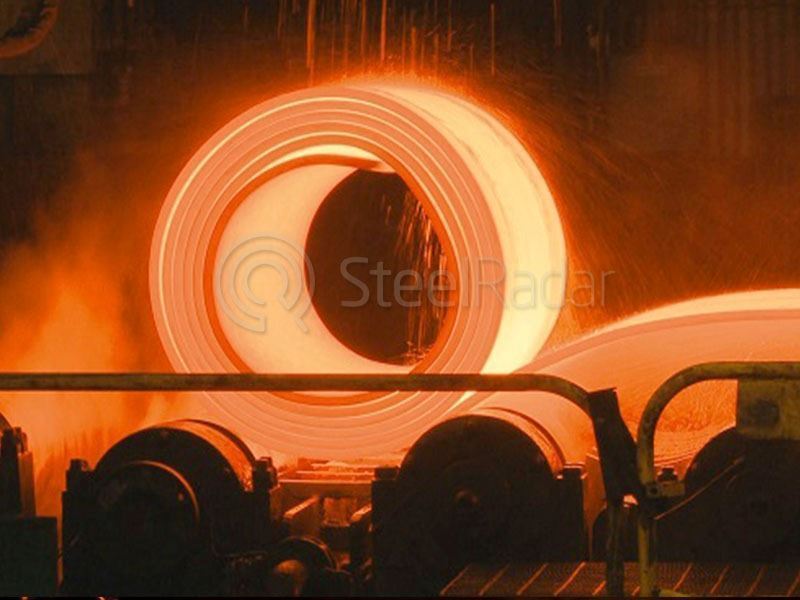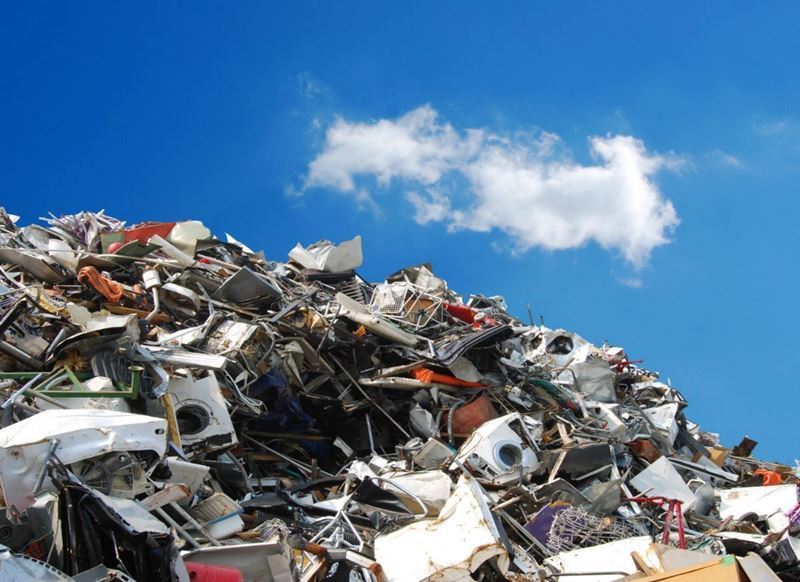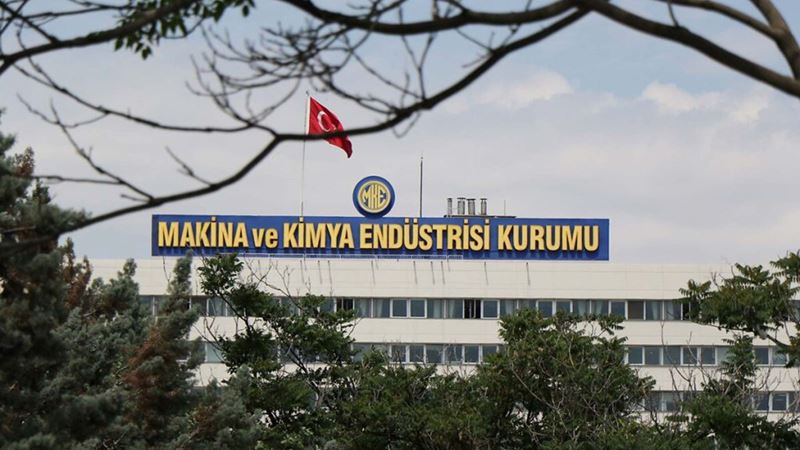Türkiye's crude steel production decreased by 1.5% in June 2023, according to the data released by TÇÜD and compiled by SteelRadar. Finished steel production decreased by 1% compared to the same month of 2022 and was recorded as 3.1 million tonnes. The decrease in finished steel production stemmed from the 12.1% increase in imports. Finished steel consumption increased by 27.4% to 3.3 million tonnes.
- Flat steel production decreased by 8.8% to 1.1 million tonnes in June, while flat steel consumption increased by 21.9% to 1.7 million tonnes. Long steel production and consumption increased by 3.5 per cent and 33.5 per cent, respectively.
- In the first half of 2023, finished steel production decreased by 8% and consumption increased by 15.8%.
- In June 2023, Türkiye's exports of steel products decreased by 40.8% in terms of quantity. Flat steel products decreased by 43.9 per cent, long steel products by 34.6 per cent and semi-finished steel products by 86.8 per cent. The decrease in the first half of the year was 46.5 per cent in terms of quantity.
- In June, Türkiye's steel imports increased by 12.1% in quantity terms. Flat steel products and long steel products increased by 24.3 per cent and 37.3 per cent, respectively.
- The 43.4% increase in imports of long steel products in the six-month period stemmed from the 82.5% increase in wire rod imports. In this period, imports of wire rods increased by 87.4% and imports of alloy steel wire rods by 66.9%.
- In the first half of 2022, the ratio of exports to imports, which was 96.72 per cent, decreased to 47.99 per cent in 2023 due to the fact that imports were increasing while exports were decreasing rapidly.
- While the share of imports in total steel product consumption was 30.5%, the share of imports in flat product consumption reached 50%. The share of imports under DIR in total imports was 89.6% for semi-finished products and 49.5% for total imports.
- In the first six months of 2023, the EU had the largest share in scrap imports, which decreased by 22.9% compared to the same period of the previous year. Scrap imports from North Africa increased, while imports from all other regions decreased.
TÇÜD concluded its report with the following sentences: 'While the decrease in production and exports continued, albeit at a slower pace, the extraordinary increase in imports had a negative impact on our steel industry. It is of vital importance not only for our steel industry but also for our economy that the state-supported, dumped imports, which have caused a significant decrease in the ratio of exports to imports and the capacity utilisation rate, are swiftly prevented.
The data were seen in the global market as follows;










Comments
No comment yet.